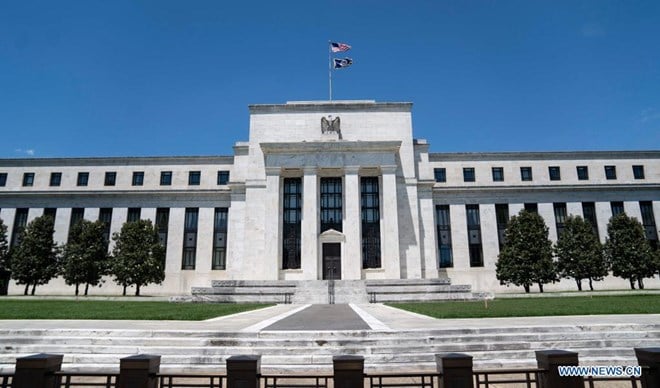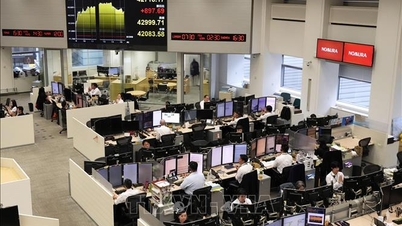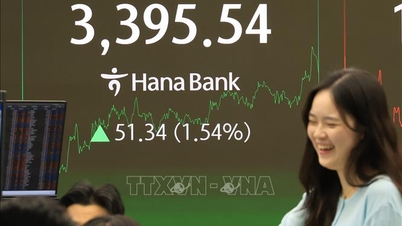
Through the recent move of the FED, the stock market and treasury bonds are considered two factors that benefit.
Yields on two-year US Treasuries fell sharply after comments from Fed Chairman Jerome Powell after the policy meeting, easing pressure on US Treasuries that is spreading through the global economy , affecting asset prices, hurting homebuyers and increasing the cost of doing business for US companies.
While the Fed still leaves open the prospect of implementing additional policies to promote strong economic growth, according to Mr. Powell, high US Treasury bond yields could help the central bank maintain restrictive monetary conditions to eliminate the current overinflation.
The question now is whether the Fed could be at a disadvantage if the tightening financial environment gets out of hand. This is arguably something Mr. Powell himself has initiated, given that the Federal Reserve has now completed its aggressive tightening campaign. If the environment tightens too much, the risk of a recession for the US economy will be higher.
“I think the problem the chairman has at this point is talking to the market in a supportive way, stocks going up, bond yields going down, that’s loose financial conditions, in order not to tighten monetary policy further,” said Bill Dudley, former president of the New York Fed.
US bond yields fell after the US Treasury Department announced plans to sell a smaller-than-expected amount of securities next week, while a gauge of US factory activity also came in weaker than expected.
More broadly, the Bloomberg US Financial Conditions Index – which measures tightness in money, bond and stock markets – has been lower for three straight months as higher interest rates have sent the S&P 500 stock index tumbling.
While Powell on Wednesday left the door open to another rate hike in December, markets were still weighing the Federal Open Market Committee’s view: “Tighter financial and credit conditions for households and businesses could weigh on economic activity, employment, and inflation.”
"However, according to former Fed Vice Chairman Richard Clarida, volatile financial conditions are a significant challenge. He added that policymakers "may regret" focusing on volatile market data," - Jim Reid, credit expert for Europe and the United States at Deutsche Bank AG, commented.
Some say Wall Street is pushing up financing costs for consumers and businesses, hurting demand. For its part, Standard Chartered estimates that a more restrictive financial environment could shave more than 1 percentage point off underlying U.S. economic growth next year.
“The rise in mortgage, corporate and Treasury yields, combined with a strong dollar and weaker equities, has increased the expected drag on the US economy. The potential risks to growth may be underestimated, especially if they are not kept under control,” the report said.
Source



![[Photo] Many dykes in Bac Ninh were eroded after the circulation of storm No. 11](https://vphoto.vietnam.vn/thumb/1200x675/vietnam/resource/IMAGE/2025/10/15/1760537802647_1-7384-jpg.webp)
![[Photo] The 18th Hanoi Party Congress held a preparatory session.](https://vphoto.vietnam.vn/thumb/1200x675/vietnam/resource/IMAGE/2025/10/15/1760521600666_ndo_br_img-0801-jpg.webp)
![[Photo] Conference of the Government Party Committee Standing Committee and the National Assembly Party Committee Standing Committee on the 10th Session, 15th National Assembly](https://vphoto.vietnam.vn/thumb/1200x675/vietnam/resource/IMAGE/2025/10/15/1760543205375_dsc-7128-jpg.webp)







































































































Comment (0)